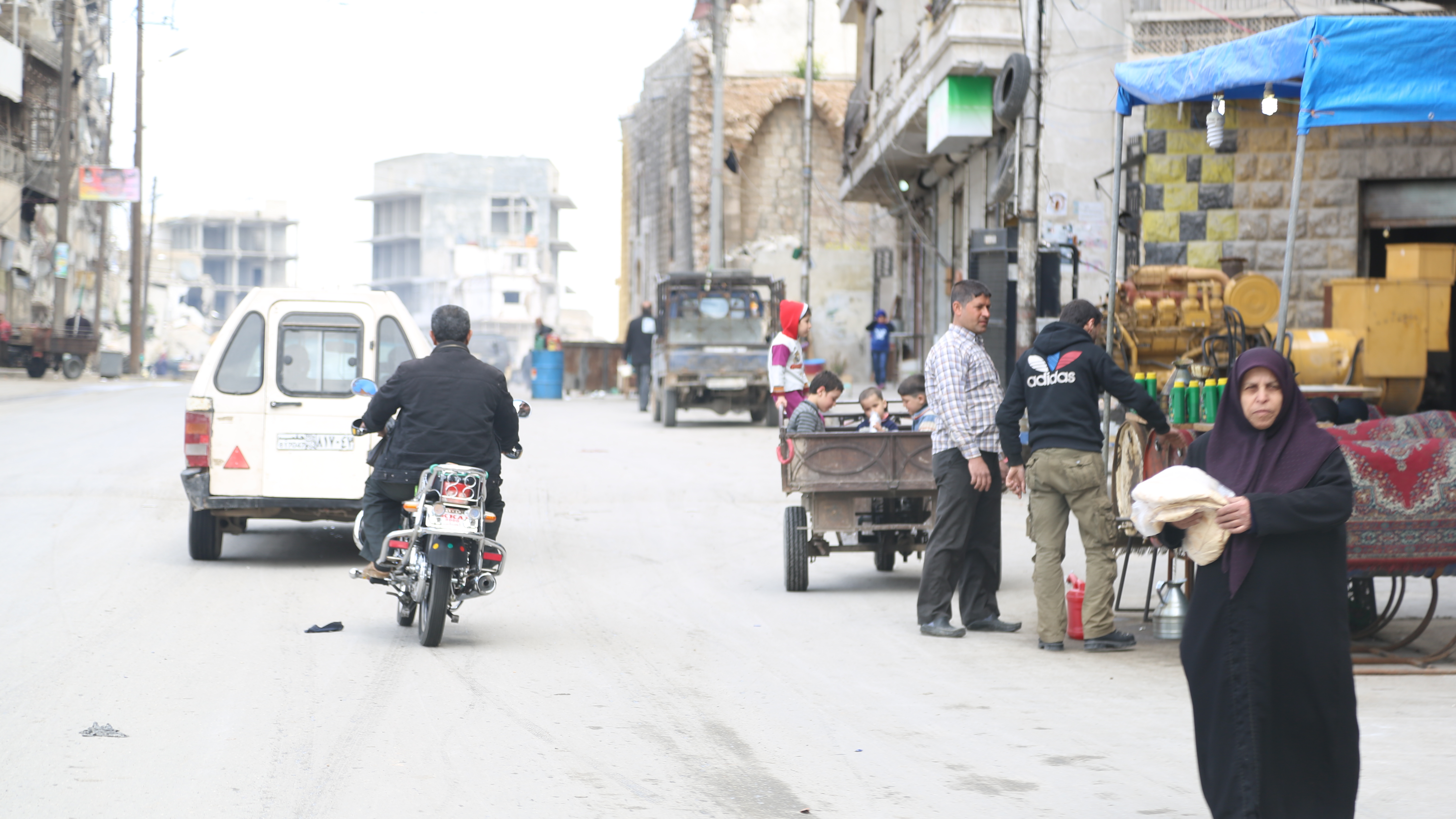Waiting for Our Reunion

A woman selling bread in the Tarik al-Bab neighbourhood. Photo by Husam Kuwayfatiyah
My city of Kafr Nabl was liberated on August 10, 2012, but at a heavy cost. More than 125 people were killed and the city witnessed more than five massacres.
The constant sound of warplanes, missiles showering us from all directions: all these things generated a permanent sense of fear among civilians whose lives had been turned upside down.
Like many other children, my 10-year-old brother was terrified by these noises. He used to get so scared he would collapse whenever he heard the sound of a plane or a missile. After taking him to a doctor, we were told that that he suffered from tachycardia as a result of of the stress and fear he had been living in. The doctor said that my brother would not get better unless he felt safe again.
A few months later, my father gave in to my brother’s pleas to leave Syria and we all travelled to Turkey.
We left our city on January 2, 2013, our hearts broken by the pain of separation.
We ended up in the city of Reyhanli in Turkey. It was difficult to find a place in a refugee camp because of the vast numbers of people who had fled there. So we had to rent a house, which was expensive. We tried to find work but failed because there were so many other Syrian refugees like us looking for jobs.
After a year, all our savings were exhausted. My father considered going back to Syria, but my brother refused to return. He insisted that he wanted to try his luck in a European country and my father eventually accepted this suggestion. My brother left in the hope that he would received a residence permit as an unaccompanied minor and that someday we would all be reunited.
Around that time, a man from my city proposed to me. He was working at a shop in Reyhanli owned by a Syrian man.
We duly got married and two months later I found out I was expecting a child. I can’t describe my feelings of happiness. But they did not last long because my husband lost his job.
My parents had decided to go back to Kafr Nabl and my husband asked me to go with them until he could find new work and establish himself.
I returned with my parents to my city on June 22, 2014. I was very sad because I had left my husband behind in Turkey and was close to giving birth.
I suffered a great deal after my daughter was born because I had to fill the roles of both mother and father. I searched far and wide for a job so that I could support my baby and not be a burden on my parents. By the time my daughter was two months old, I found work in the union of revolutionary offices.
But then my husband called to tell me to return to Turkey as he had found a good job. I left to join him but only a few days after I arrived his landlord said that he was going to raise the rent and asked us to leave his property.
Once again, I had to return to Kafr Nabel and rejoin my parents, leaving my husband behind to look for a better-paid job.
After I came back, I discovered that I was pregnant again. I wasn’t at all happy about that.
Months later, my husband had not yet found a decent job and was just earning enough to support his daily needs.
I still live with my elderly parents, with my one and-a-half year old daughter and my six month-old son. His father has yet to see him and we are still waiting for our reunion.
Nisreen al-Ahmad, 33, is from Kafr Nabl in the Idlib countryside. She is a mother of two who stopped studying Arabic Literature during her third year of college due to security conditions.
